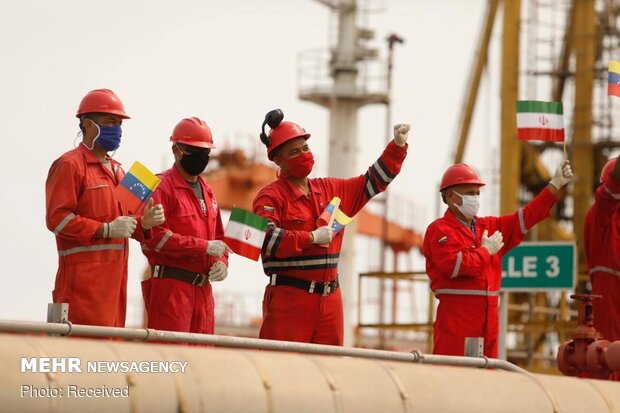Iranian tankers have delivered energy of resistance to Venezuela: ex-diplomat

A former Iranian diplomat believes that Iran’s measure to deliver fuel to Venezuela in defiance of illegal US sanctions has sent a strong political message while also promoting the spirit of resistance.
“America received a great blow and I should say that these ships were not just 1.5 million barrels of fuel but the energy of resistance that arrived in Venezuela,” Former Iranian ambassador to Afghanistan and Italy, Abolfazl Zohrevand, told Mehr News Agency on Thursday.
Iran and Venezuela share interests because of being under US sanctions and this has led to their decision to continue economic cooperation despite US threats, he said.
Last month, five Iranian tankers delivered much-needed gasoline to the Latin American country facing a fuel crisis. The shipments were warmly embraced by Venezuelan people who stormed Twitter to thank Iran.
Both sides have benefited from this trade, he said. “However, puting aside the economic aspect, dispatching these five tankers sends messages in the international arena and is a response to the unilateral measures of the United States.”
“This shows that by showing a national determination, independent countries can confront and ignore pressures imposed by imperialist and bullying countries,” he added.
He noted that the shipment’s message has been ‘far beyond’ economic aspects. “Iran, as the axis of resistance in today’s world, could strongly help the resistance of a nation in Latin America which is considered US’ backyard.”
The legal trade between Iran and Venezuela have stirred the wrath of the US administration in Washington as both countries are under illegal sanctions imposed by the White House.
“What Iran did was transferring the slogan of ‘we can’ to Venezuela to create self-confidence in that country. A country which enjoys the biggest oil reserves should not face such poor economic condition. These conditions are not just the result of current US sanctions, rather, they can be rooted in the history of US colonialism and American companies' activities in the region,” Zohrevand added.

